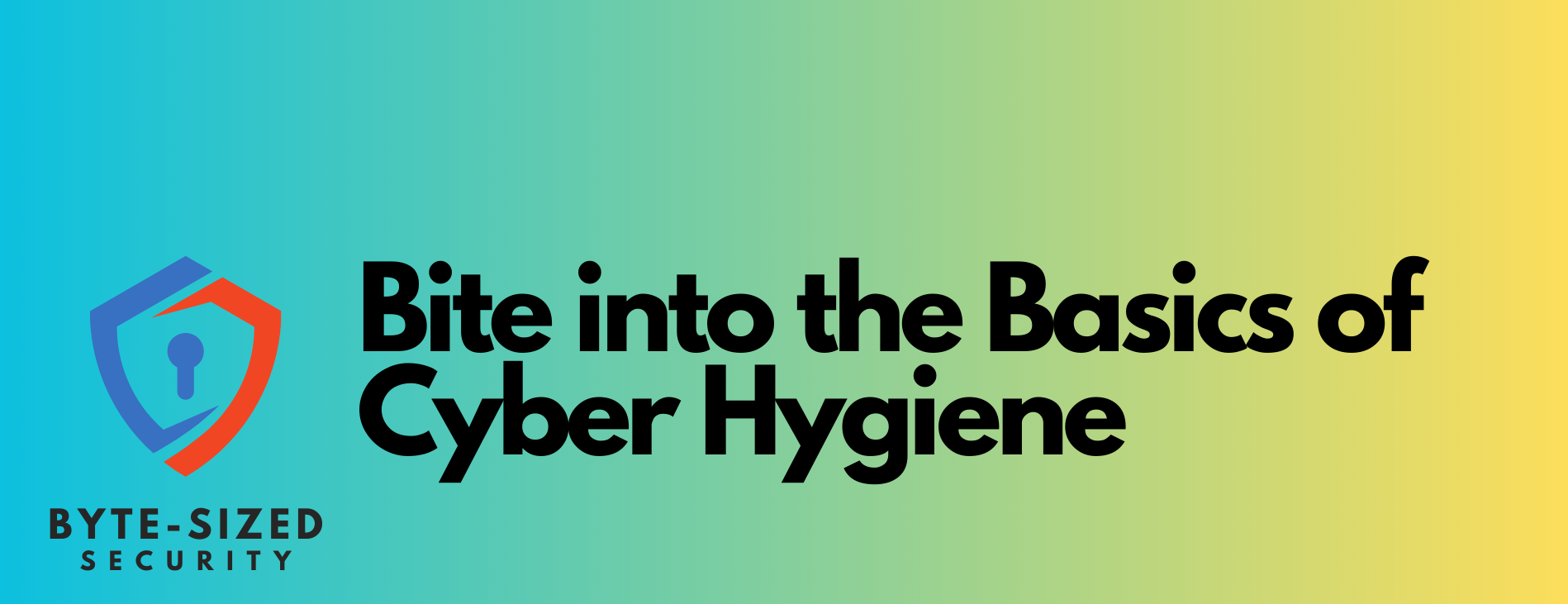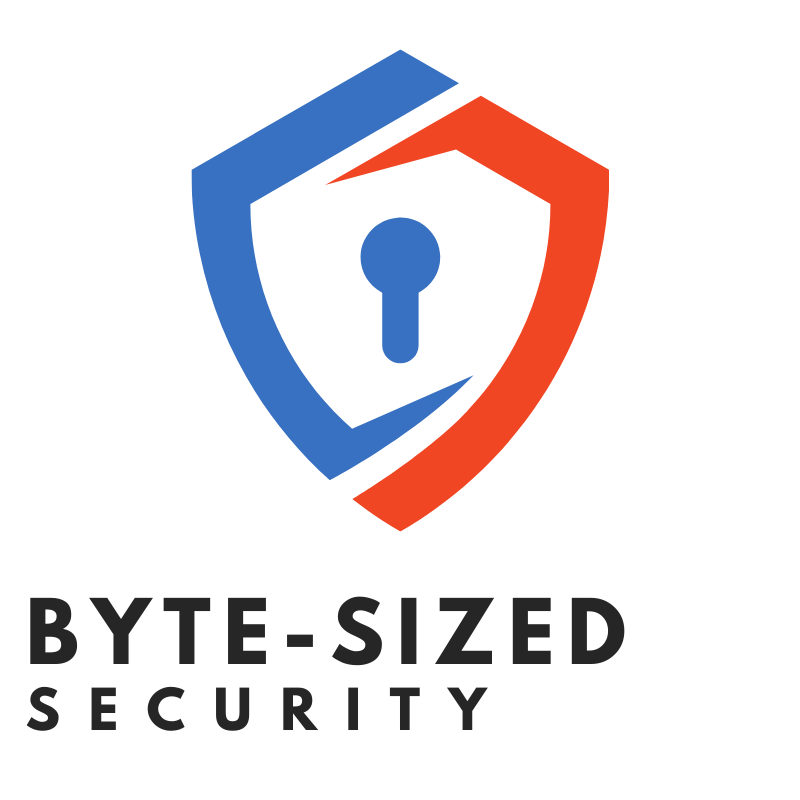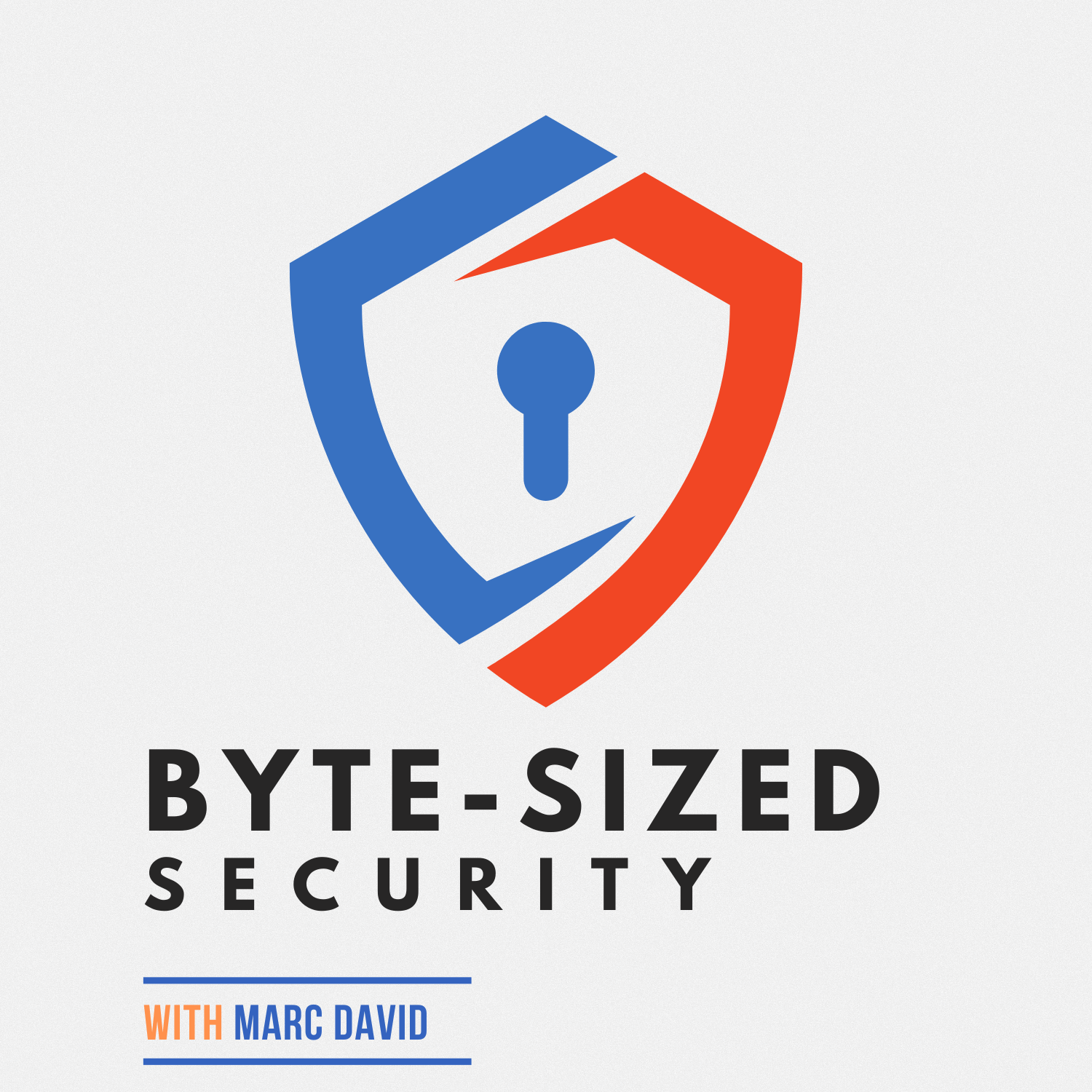Ep4: Keeping Kids Safe Online
In this solo episode of Byte Sized Security, host Marc David provides guidance for parents, teachers and caregivers on keeping children safe online. He covers:
- Protecting kids from online predators - Teaching them not to share personal info, limiting strangers, and monitoring communications
- Discussing inappropriate content - Using parental controls, having age-appropriate conversations about explicit material
- Addressing cyberbullying - Getting evidence, escalating to schools/authorities, providing emotional support
- Curbing oversharing - Advising kids on smart posting habits and privacy settings
- Fostering good digital citizenship - Setting family tech agreements and modeling positive behaviors
- Implementing parental controls - Using built-in device restrictions and monitoring apps judiciously
- Having ongoing conversations - Getting kids to open up about their online lives and habits
- Encouraging kids to come forward - So adults can help navigate issues like predators, bullying, and oversharing
- Balancing protection with privacy - Overseeing activity without invading their space
For full episode recaps, subscribe to Byte Sized Security wherever you get your podcasts or visit bytesizedsecurity.show. See you next time!
---
I do hope you enjoyed this episode of the podcast. Here's some helpful resources including any sites that were mentioned in this episode.
--
Sites Mentioned in this Episode
- Parent Guides from ConnectSafely - A growing collection of clearly written guidebooks that demystify apps, services and platforms popular with kids and teens
- Internet safety advice and information - Receive practical advice on the steps you can take as a parent to keep kids safe on social media, in online games and around the web
- Protecting Kids Online - How to talk to your kids about being online, and how to help them make good decisions and stay safe
- FBI Publications - A Parent's Guide to Internet Safety
- NetSmartz - Provides age-appropriate videos and activities to help teach children be safer online with the goal of helping children to become more aware of potential online risks
- Parenting, Media, and Everything in Between - Tips to promote healthy communication and development with kids
--
Find subscriber links on my site, add to your podcast player, or listen on the web players on my site:
--
Support this Podcast with a Tip:
Transcript
Welcome back to Byte Sized Security, your source for
:bite-sized cybersecurity lessons.
:Our kids' lives are immersed in technology from an early age, which can introduce
:all sorts of potential online risks.
:So in this solo episode, I'll be providing parents, teachers, and
:caregivers with essential tips on keeping children safe online.
:I'll cover how to protect them from online predators, cyberbullying, oversharing,
:and age-inappropriate content.
:I'll also discuss fostering good digital habits and how
:to monitor kids' device usage.
:If you want to help the children in your life thrive online,
:this episode is for you.
:Let's dive in!
:The digital world poses many potential dangers to children that parents today did
:not grow up contending with themselves.
:From online predators disguising themselves on social media, to
:cyberbullies harassing classmates online, to endless inappropriate
:content just a few clicks away, it's understandable for parents to feel
:overwhelmed trying to protect kids online.
:But with the right precautions and open communication, you can allow
:your kids to benefit from technology while greatly reducing risks.
:I'll start with one of the most frightening threats parents
:worry about - online predators.
:It's extremely important to educate kids early on about online strangers
:and why they should exercise extreme caution sharing any information or
:interacting with unknown people online.
:Make sure they understand that predators frequently disguise themselves as
:young people or claim false identities online to try and gain trust.
:Impress upon children that if they ever receive messages, friend requests, or
:comments from strangers, they should immediately tell a trusted adult.
:You'll also want to monitor kids' accounts and teach them to only approve
:followers/contacts they know in real life.
:For young kids, it's smart to disable private messages from strangers
:in app settings when possible.
:And remind them not to reveal private information publicly on
:profiles that could allow stalking or hacking, like their address,
:school, birthday, or location data.
:When it comes to discussing inappropriate content, you'll want to tailor the
:conversation based on your child's age.
:For young kids, establish clear rules against accessing apps, sites, or
:search terms you deem off-limits, and consider using parental control
:tools to block mature content.
:Discuss the dangers of addiction to inappropriate content at an age when
:their brains are still developing.
:For pre-teens and teenagers, have open discussions about pornography and why much
:of what is depicted promotes unhealthy attitudes and behaviors around intimacy.
:Talk through how to handle peer pressure to view explicit content.
:And assure kids they can come to you if they encounter anything
:that disturbs them online.
:You want to foster judgment, ethics and self-confidence to make
:good choices when unsupervised.
:Cyberbullying is another major online threat to kids that
:all parents need to address.
:This can include posting embarrassing images without consent, spreading
:hurtful rumors, attacks on social media, harassment via texting,
:exclusion, impersonation and more.
:If your child experiences such bullying online, assure them it's
:not their fault and that coming to you was the right decision.
:Document any digital evidence.
:Escalate to the school and authorities as needed, and contact apps/sites to remove
:content and block harassers when possible.
:Most importantly, continually reinforce your child's worth
:and provide emotional support.
:Peer bullying can also occur via group chats.
:So counsel children to leave any chat where bullying is occurring and to
:alert an adult about the situation.
:Role-play good strategies for handling peer pressure to
:participate in cyberbullying.
:And have zero tolerance for kids spreading cruelty themselves online,
:imposing consequences as needed.
:Kids often lack judgment around oversharing personal information
:online that can follow them for years.
:Discuss keeping profiles private, thinking carefully before posting
:anything embarrassing or controversial, and avoiding specifics around location,
:school, family details, and contact info.
:Set privacy settings on apps to limit what friends can share about your child also.
:To foster overall good digital citizenship and safety, implement
:family tech agreements defining acceptable usage and consequences.
:Discuss treating online friends kindly and avoiding profanity on public channels.
:Launch recurring conversations on topics like how their online world
:compares to reality, the permanence of the internet, and how everything
:leaves a digital footprint.
:And you can set a great example by modeling self-control around device
:usage yourself and participating in some screen-free family activities.
:Show interest in their online activities and friends just as
:you would their offline ones.
:And encourage kids to come to you as issues arise, so you can team up keeping
:them secure, not micromanage their lives.
:When it comes to parental controls, features built into kids' devices can
:help protect them when unsupervised.
:iOS and Android phones have parental restrictions like web filtering,
:content blocking, limiting screen time and disabling features.
:Take advantage of these native capabilities.
:For additional oversight, kid-focused mobile carriers like
:Pinwheel offer extensive controls.
:And family safety apps like Bark, Qustodio, and Norton Family Premier
:monitor texts and social media for cyberbullying, predatory behavior,
:profanity, explicit content and more, alerting you to risks.
:The key is being involved just enough to protect kids online
:without invading their privacy.
:Fostering open communication will get you much further than any app can.
:The digital world is filled with tremendous opportunities for our kids
:to learn, create, socialize and play.
:With reasonable precautions and guidance, you can keep the online
:environment safe and positive while allowing your kids to thrive.
:That wraps up today's solo Byte Sized Security episode focused
:on protecting children online.
:Monitor their activity, have ongoing discussions, lead by example,
:and implement parental controls.
:But most importantly, foster open communication so kids feel safe coming to
:you for help navigating the digital world.
:If you have any other online safety tips, reach out!
:And tune in next time for more bite-sized cybersecurity advice.
:Stay safe!
:Check the show notes section of this podcast for more recommended sites with





